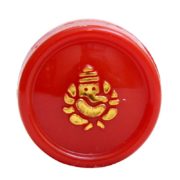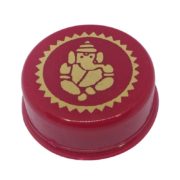Powering trucks, buses, and even some modern cars, diesel engines are known for their efficiency and durability. However, like any complex machine, they rely on a network of filters to keep them running smoothly. One such critical component is the diesel fuel filter, often referred to as the unsung hero of the engine.
This guide delves into the world of diesel fuel filters, exploring their function, types, replacement intervals, and the consequences of neglecting them.
The Role of the Diesel Fuel Filter: Keeping Contaminants at Bay
Diesel fuel, while a powerful fuel source, is not a pristine liquid. It can contain various contaminants, including:
- Dirt and Dust: These can be picked up during storage, transportation, or even while fueling at the pump.
- Water: Diesel fuel attracts moisture from the air, and condensation can form within the tank.
- Metal Particles: These can originate from wear and tear within the fuel system itself.
- Microbial Growth: In rare cases, diesel fuel can harbor bacteria and fungi, especially if stored for extended periods.
These contaminants, if allowed to enter the engine’s sensitive injection system, can cause a multitude of problems:
- Clogged Injectors: The tiny openings in fuel injectors can easily get blocked by dirt, debris, or rust particles, leading to uneven fuel delivery and reduced engine performance.
- Increased Wear and Tear: Abrasive particles like dirt can accelerate wear on internal engine components like the fuel pump and injectors.
- Corrosion: Water in the fuel can lead to corrosion within the fuel system, causing damage to pipes and components.
- Microbial Growth: This can clog filters and even damage fuel lines in extreme cases.
The diesel fuel filter acts as the first line of defense against these contaminants. It is typically located between the fuel tank and the fuel pump, ensuring that only clean fuel reaches the engine’s heart.
Types of Diesel Fuel Filters: Understanding the Options
There are two main types of diesel fuel filters:
- Spin-on Filters: These are the most common type. They resemble oil filters and screw onto the engine block or a separate housing. Inside, a pleated paper filter element traps contaminants as the fuel passes through. Spin-on filters are generally disposable and require periodic replacement.
- Water Separating Filters: These filters are designed to address the specific issue of water contamination. They often employ a two-stage filtration process. The first stage removes solid contaminants like dirt and rust. The second stage utilizes a water-absorbing material like cellulose to trap water droplets and separate them from the fuel. Water separating filters often have a drain valve at the bottom to allow for periodic removal of accumulated water.
Beyond these two main types, some advanced diesel fuel filters may incorporate features like:
- Heating Elements: In cold climates, diesel fuel can thicken, making it harder to filter. Some filters have built-in heating elements to maintain optimal fuel flow.
- Pre-filters: These are smaller filters installed upstream of the main filter to capture larger debris before it reaches the primary filtration stage.
The specific type of filter your vehicle requires will depend on its make, model, and year of manufacture. Consulting your owner’s manual or a qualified mechanic is crucial for choosing the right filter.
Replacing Your Diesel Fuel Filter: Maintaining Optimal Performance
Just like engine oil, diesel fuel filters have a limited lifespan. The recommended replacement interval varies depending on several factors, including:
- Fuel Quality: Using cleaner, high-quality diesel fuel reduces the burden on the filter. Conversely, lower-grade fuel with higher contaminant levels will clog the filter faster.
- Driving Conditions: Frequent operation in dusty or dirty environments puts a greater strain on the filter.
- Manufacturer Recommendations: Different car manufacturers specify replacement intervals for their vehicles based on their testing and engineering standards.
Typically, diesel fuel filters require replacement every 15,000 to 30,000 miles. However, consulting your owner’s manual for the specific recommendation for your vehicle is vital. Signs that your diesel fuel filter might be nearing the end of its life include:
- Decreased Engine Performance: Clogged filters can restrict fuel flow, leading to a loss of power and acceleration.
- Rough Idling: If the engine struggles to maintain a steady idle, a dirty filter could be the culprit.
- Black Smoke: Incomplete combustion due to clogged injectors can result in the emission of black smoke from the exhaust.
Replacing a diesel fuel filter is a relatively straightforward process. Most vehicles allow access to the filter from under the hood. However, consulting a repair manual or seeking assistance from a qualified mechanic is recommended for specific instructions on replacing the filter in your vehicle.




